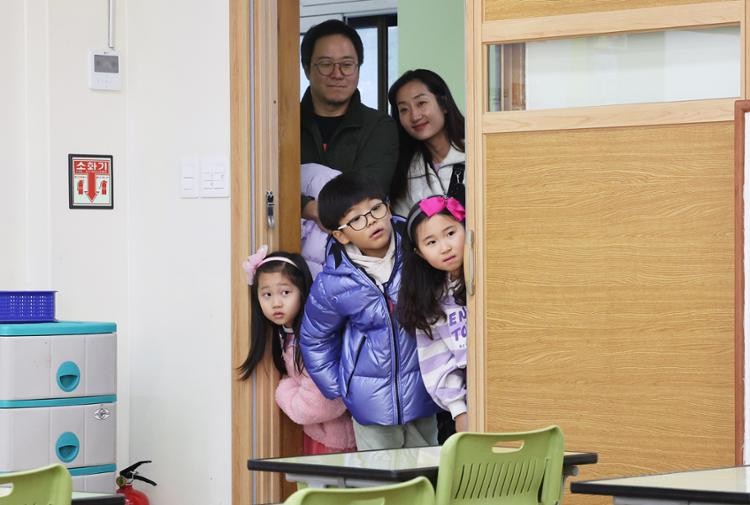
South Korea: Number of new elementary school students set to hit record low
Latest
 |
| Children due to enter elementary school this year look into a classroom during an orientation day at Youngduck Elementary School in Suwon, Gyeonggi Province, Dec. 26. (South:Yonhap) |
According to the education ministry and the interior ministry, the number of children subject to entering elementary school this year stood at 413,056 as of Dec. 20.
The government calculated the number based on a census conducted by local community centers until October. Since a significant number of children postpone their school entry until after the census, mostly due to migration or physical growth, the government assumes the actual number of new elementary school students stands around 90 percent of the total.
Given this trajectory, chances are high that the number of new elementary school students this year will remain below the 400,000 mark.
In Seoul, the number of children entering elementary school this year will be 59,492, down 10.3 percent from a year earlier. The number has been declining sharply from 78,118 in 2019 and 66,324 in 2023.
The number of new elementary schoolers is anticipated to show a faster drop in coming years because the number of newborns is plummeting quickly.
The number of children who were born in 2019 was 302,676, down from 357,771 in 2017 and 326,822 in 2018.
Given that the number of new elementary schoolers is anticipated to stand at 90 percent of the total number of eligible children, the number of those who enter elementary school in 2026 will likely stand below 300,000, just two years after the number plunged below the 400,000 mark in 2024.
Against that backdrop, the government has set the low birthrate as one of the main policy priorities that it will concentrate on this year.
“We need a completely different approach as we look for the causes and find solutions to the problem,” South Korean President Yoon Suk Yeol said during his New Year speech. “We must find out the real reasons for the low birthrate and identify effective measures.”













